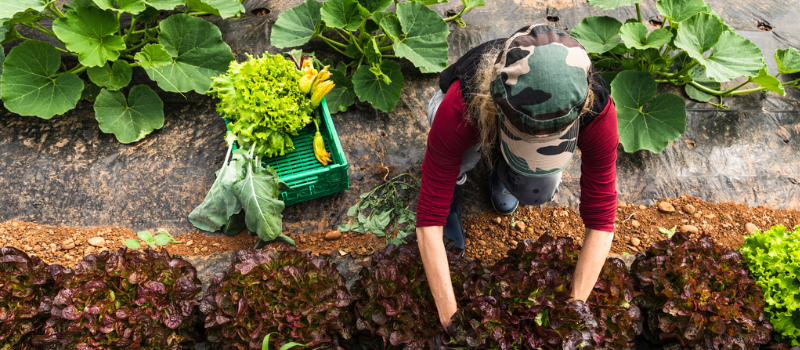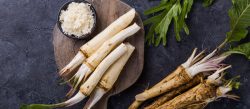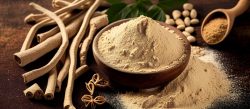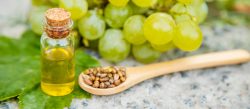
Mastering sustainability in the kitchen
Published August 29, 2023
Kira Simpson is a sustainability advocate and the creator of The Green Hub, a vibrant online platform dedicated to inspiring sustainable living and fostering a deeper connection with our planet.
Kira’s online community is thousands strong and was born from her desire to create a space where individuals could learn, share, and collaborate on their journey toward a greener lifestyle. Kira’s expertise spans a wide range of topics, from reducing plastic waste and creating thriving gardens to understanding the importance of biodiversity and supporting ethical brands.
“Because it’s our home. There’s a quote by environmentalist Gary Snyder that I love “Nature is not a place to visit. It is home.”
– Kira Simpson, on why nurturing nature is important to her.
“I’ve always loved the outdoors, living on the Gold Coast nestled between the beach and the bush, means I’m very fortunate to be surrounded by nature every day. Spending lots of time outdoors has given me a deep appreciation of our natural world, and I know it’s the reason I’m so passionate about protecting it. There’s so much evidence that shows when we spend time outside, surrounded by nature – our home – we’ll fight harder to protect it. And everybody deserves to have access to green spaces, so they can feel that connection too,” said Kira.
For Kira, nurturing nature started with her backyard, and the commitment was driven by her noticing the decline in biodiversity in her suburb, all the way from the lack of trees to flowering plants that produce food.
“I have a small veggie patch with flowers, vegetables and flowering herbs such as tomatoes and rosemary to attract pollinators like bees or butterflies. I also leave watering stations out around the yard, including some larger baths for the birds, and little pot bases with rocks for bees and insects to land on. This is so important in a country as warm as Australia as simple act of leaving water out can have a big impact on supporting wildlife.
Within the first year so many animals started visiting our yard – bees, birds, butterflies, lizards, frogs. It doesn’t take much to nurture nature at home.”
Outside of her garden, Kira’s her favorite sustainable living tip is learning to reduce food waste.
“Reducing food waste is my favourite tip and where I always recommend people start, because it is one of the easiest ways to make a difference. It costs nothing and over time, it will save you money.”
Kira says fortunately, there are lots of easy ways we can reduce our food waste – it’s mostly about rethinking how we shop, store and save our food.
To start minimising food waste at home, Kira recommends the following quick and easy tips.
- Start by planning meals and organizing your fridge. Plan your weekly meals, create a shopping list and stick to it! If you find that you regularly buy too much food and it’s going to waste, then buy less food and shop more often. I also recommend doing a stock take of the fridge and pantry at the end of each week before you shop. I call these ‘Fridge Cleanout Fridays’, where I come up a meal to use up all the odds and ends in the fridge. Lastly, create an ‘eat me first’ box or shelf and store food that needs to be eaten first in one side of the fridge crisper. These habits have really helped me reduce my food waste and get creative in the kitchen by learning new ways to cook up food that needed to be eaten.
- As soon as you get home from the shops make it a habit to prep your food by washing, cutting, and storing in containers, jars, damp tea towels, anything you have to help the food stay fresher for longer.
- Place loose leafy greens in an airtight container with a paper towel or a tea towel – this will help to soak up the moisture and keep the leaves fresh and crispy. Bunches of leafy greens such as kale and herbs can be stored in a jar with water like a bouquet. Except basil, which prefers to stay on the bench.
- Pop carrots in a jar of water, they can last up to one whole month stored this way.
- Onions and potatoes are best stored in a cool dark place like the pantry – but these two don’t like each other. The onions will cause the potatoes to sprout eyes faster, so store them separately.
- And bananas produce ethylene which will cause other fruits to ripen quicker so keep them separate. Hanging the bunch up on a hook will help slow down ripening.
- Save your veggie peels to make stock. Pop the veggie scraps in a large bag or container and store in the freezer until you’re ready to make stock. It’s so easy. 2 cups of scraps to every litre of water and cook on the stovetop for 2 hours. Strain the liquid and store in a jar in the fridge. You save waste and plastic from buying packaged, plus it’s free!
- Start a compost or worm farm. We can’t always use every part of the food we cook, and occasionally we have to throw food away – it happens. A compost will help you keep those food scraps and waste out of landfill. If you live in a rental or small space, there’s a fantastic app called Share Waste that connects you with people in your local community who will take your food scraps to compost.
The best way to change our habits is by doing one small thing every single day consistently.
We believe that nature looks after us, so we must look after nature.
That’s why we’re asking Australians to make their very own nature pledge to nurture nature. We’re aiming to show Australian’s how easy it is to nurture the nature around them by being more sustainable in their daily lives. Read all about the Small Habits, Big Changes campaign here.
Learn about which Nature's Own product may be appropriate for you.
SEE THE PRODUCTS HERE







